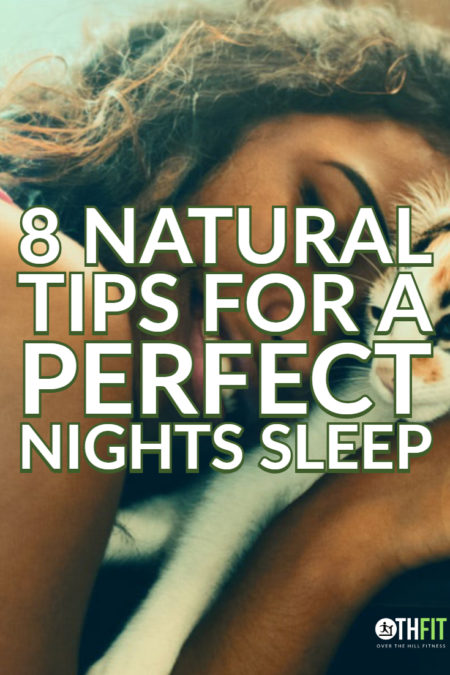
8 Natural Tips For A Perfect Night’s Sleep
Americans are increasingly having problems getting a good night’s sleep. There are 60 million people in the United States who have at least occasional difficulty sleeping each year and more and more of us are turning to pharmaceuticals for help. Americans spend around $52 Billion dollars on sleep aids and remedies. I believe that most of us can find at least one natural sleep tip that can help.
People are increasingly trying to turn away from medications and find natural alternatives for all types of ailments. Natural sleep aids are an extension of this phenomenon. Just like natural headache relief, natural pain relief, and natural mood elevators, natural sleep aids are in high demand.
You probably already know how much it sucks to be tired all the time because of poor sleep. For years I was always fatigued to the point that people around me were getting worried. When I talked to a medical professional at the local clinic I got some good advice but he was quick to offer medication.
Since I don’t take medication unless it’s a last resort I started researching how to get better sleep naturally. Below you will find those natural sleep tips that I gathered from my own experience and research. Since I have started following these tips my sleeping is greatly improved and I think they will work for you as well.
#1 Stick to your schedule
I’ll spare you the science lecture but your body has an internal clock, known as circadian rhythms, that manages your waking and sleep cycles. Your body temperature, hormone levels, and blood pressure are all managed by this internal clock. This may be one of the more difficult natural sleep tips to stick to but if you can, it’s more than worth it.
Experts recommend 7-8 hours of sleep each night and go to bed and wake up at the same time each morning. Going to sleep and waking at the same time every day helps to keep that clock in sync. I’m sorry to say that this includes weekends so you will need to stop sleeping in.
#2 Relax
Anxiety, tension, and stress can all make falling and staying asleep difficult. This happens to everyone at some point. Managing stress and anxiety is a huge topic that I won’t go into here.
I will share with you the basic outline of my nightly ritual below. I have been doing this as long as I can remember and I have always been able to fall asleep quickly and easily. In fact, having a nightly ritual is my favorite natural sleep tip.
One quick note. I always roll onto my side to start falling asleep but it doesn’t matter. Do whatever is most comfortable for you. Also since this is my personal ritual it may not work for you. Feel free to take from it whatever you find useful.
If you have a sleep ritual I would love to hear about it. It might be helpful for others as well. Please comment, email, or send it to us on social media.
#3 Turn off electronics
Avoid electronic screens for the two hours before bedtime. The blue lights suppress melatonin, a natural hormone that helps you sleep. We naturally
If you can’t be away from your electronics for that long (like me) there are a few things you can do to reduce the effects.
- Use a device with a smaller screen. The smaller the better.
- Turn down the brightness or if possible use a device that isn’t back-lighted.
- See if your device has a night mode. Normally this will change the light from blue to red.
- Use blue-light filtering glasses.
- When it’s time for sleep set the device where it’s lights won’t disturb you.
#4 Make the room comfortable
A lot of sleep experts will tell you to remove everything from your bedroom that isn’t for sleep or sex. The theory is that by removing other activities you will associate your bedroom with sleeping. That will help you sleep.
Studies are very mixed on if that helps or not. It seems to be very helpful to some people and not others. It might be worth trying out. There are some other natural sleep tips that you can do to help make your bedroom more comfortable for sleeping.
- Turn down the heat. A cooler room will help you sleep better and studies show that around 66° is best.
- Get blackout curtains and remove or block any electronic light sources.
- Get a humidifier for your room if you live in a more arid environment.
- Turn on the fan. Ceiling fans are best but anything to create air movement will help you sleep.
- Play soft music or get a white noise generator to block out background noises.
- Kick out the pets if you can. If you let your pets sleep in bed with you they may be waking you up without you even knowing it. We have 3 dogs in our room but only the little one gets to be on the bed. (Since I wrote this we have added another dog, he is not little and he now sleeps on the bed as well. I didn’t follow my own advice)
- Use a high-quality sleeping mask if your room is still too bright.
#5 Upgrade your pillows, sheets, and mattress
Some wise person once said that you shouldn’t try to save money on the things between you and the ground. Meaning shoes, tires, and your bed. This may be an expensive natural sleep tip, but it is worth the cost.
A few years ago we upgraded our mattress to one of those memory foam ones that we were seeing advertised online. I was pretty skeptical that it would help much but it was time to replace ours and the price was right. I’m not going to promote ours as being the best one but the improvement was pretty amazing.
Since then we have splurged on the expensive Wal-Mart pillows (lol) and nicer sheets. I can say that I have never had a more comfortable bed to sleep on in my life. Now when I wake up in the morning I don’t hurt, which was a major problem before.
Another update – the new dog tore into our mattress so we had to buy a new one. We went with the Nectar, which is a different online brand than what we have. We love it, it’s a bit firmer than the Leesa which is what we did have. We also bought their fancy pillows and sheet set. The dog ate the pillows but the sheets are wonderful.
It’s a good thing this dog is so great in so many other ways.

#6 Exercise Daily
You knew this one was coming. There have been millions of studies on the effects of exercise on sleep (I’m not exaggerating). I’ll save you the trouble of reading them all and summarize.
Exercise will greatly improve the frequency and quality of your sleep. I think I can confidently say that exercise can contribute more to a good night’s sleep than any one of these other natural sleep tips.
Getting 20-30 minutes of exercise has shown to improve the quality and length of sleep. It helps you to fall asleep faster and sleep deeper. It can also help with both sleep apnea and insomnia. The best news is that it doesn’t seem to matter when you get your exercise during the day. As long as you are getting some exercise you will see benefits.
Selected Studies and Research
- https://www.ncbi.nlm.nih.gov/pmc/articles/PMC4341978/
- https://www.ncbi.nlm.nih.gov/pubmed/25426516
- https://www.ncbi.nlm.nih.gov/pubmed/15892929
#7 Lay off stimulants before bed
It goes without saying, but taking any kind of stimulant before bed will affect your sleep. What might surprise you is how long before bedtime that you need to cut back if you want a good night’s sleep.
For a long time, the rule of thumb for caffeine before bedtime was 2 hours. This changed after a study published in 2013 showed a moderate dose of caffeine 6 hours before bedtime caused significant effects on sleep quality. Now for best results, it is recommended that you stop any caffeine intake 4-6 hours before bedtime.
Many people don’t realize this but nicotine is also a stimulant and can impact your sleep. There are fewer studies on nicotine but if you must use nicotine in any way it is best to do so at least 2 hours before sleeping. If I come across a good study on the effects of nicotine on sleep I’ll update this.
Finally, while not a stimulant, alcohol will also cause you to sleep poorly. While alcohol helps you fall asleep faster, it reduces the quality of sleep by reducing the time spent in REM. One study showed that even a moderate amount of alcohol reduced sleep quality by 24%.
#8 Feel free to take short naps
The older I get the more I love taking naps in my hammock on the weekends. If you’re like me then I have good news for both of us. A short mid-day nap may not only help you sleep but could also have health benefits as well.
There have been many studies done on the positive effects of napping such as increases in mood, memory, and energy levels. One study showed a 37% lower coronary mortality in individuals who regularly took mid-day naps.
As we mentioned before, caffeine has a negative impact on sleep quality at night. A study showed that those effects were even worse during daytime naps. So if you are planning on taking a nap to catch up on sleep consider limiting your caffeine intake prior.
Additional Studies on Napping
- https://www.health.harvard.edu/healthbeat/the-benefits-of-napping
- https://web.archive.org/web/20120419073208/http://human-factors.arc.nasa.gov/zteam/fcp/pubs/jsr.art.html
My simple nightly ritual
Step 1. Slow Your Breathing
Take a deep breath in over three seconds, hold it for the count of three, release over three seconds, then hold your lungs empty for three seconds. Rinse and repeat as you do the relaxation exercise explained next. This conscious slow breathing will trick your brain into relaxing and preparing for sleep.
This breathing technique is known as the box breathing technique. There are other breathing cycles, this one happens to work for me. Below is a short video demonstrating the timing. As a side note our autistic son uses this same breathing technique to calm down and it works great even outside the bedroom.
Step 2. Relax your muscles
Start at your feet and tighten then relax every muscle on the way up to your neck and shoulders. Hold each muscle group tight during as you inhale, then relax as you exhale.
When you get to the top, go back down to your feet. I usually only do one pass up and down. If you still feel tense after one pass do another until you are relaxed.
Step 3. Imagine something calm and quiet
Quiet your mind as much as possible by daydreaming about something calm and quiet and pleasant. You want to really imagine it like it is real. Try to think about how the air feels, how things smell, what you hear.
Step 4. Develop your own routine
When you find something that works for you stick with it and do it every time you fall to sleep. If something doesn’t work don’t be afraid to try something new. Pretty soon your ritual will be enough to put you right to sleep.
Conclusion
As you can see there are a LOT of studies on sleep, which oddly enough makes it harder to find reliable information. I hope that you found these natural sleep tips for getting a good night’s sleep helpful.
If these tips aren’t doing it for you we are already working on another article where we will be sharing the various supplements, gadgets, and apps to help you sleep better and we have compiled a great list of Vitamins and Minerals Help You Sleep Through the Night. If you are having trouble snoring you might want to check out this review on nasal dilators that have helped me greatly.
Thanks for taking the time to read, please share this with your friends and on social media. If you have any sleep tips or tricks of your own I would love it if you could leave them in a comment below.
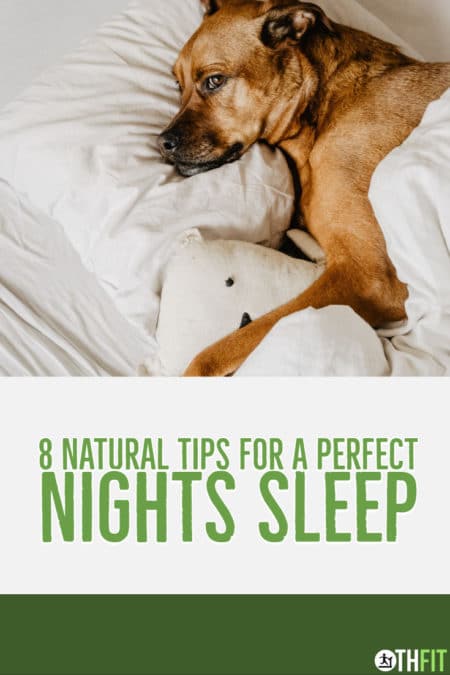
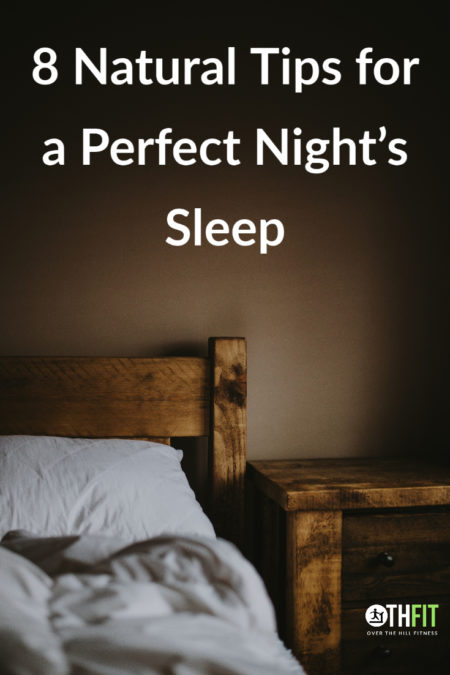
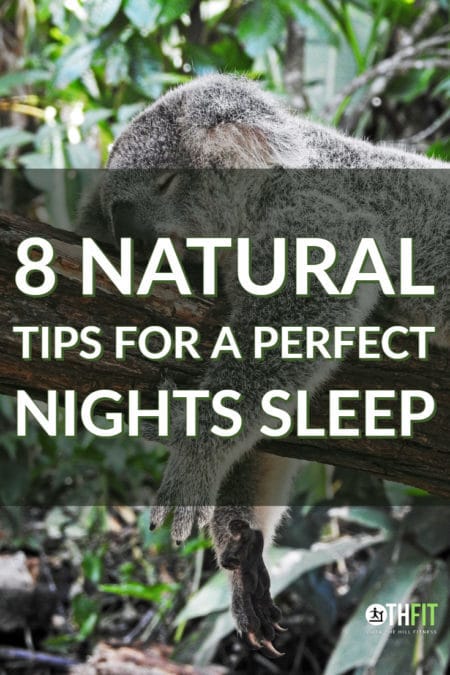
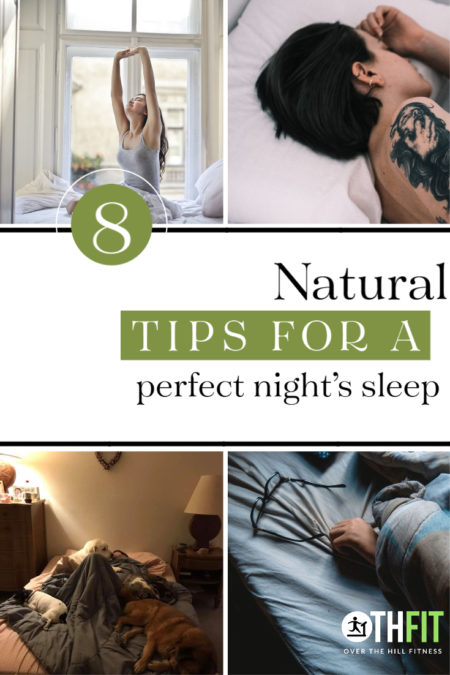
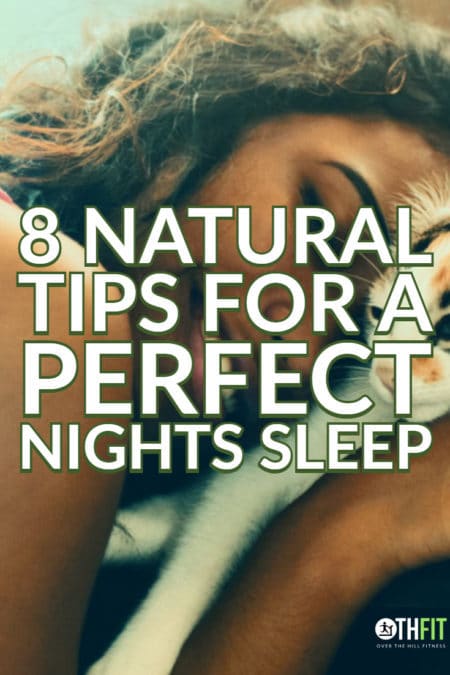
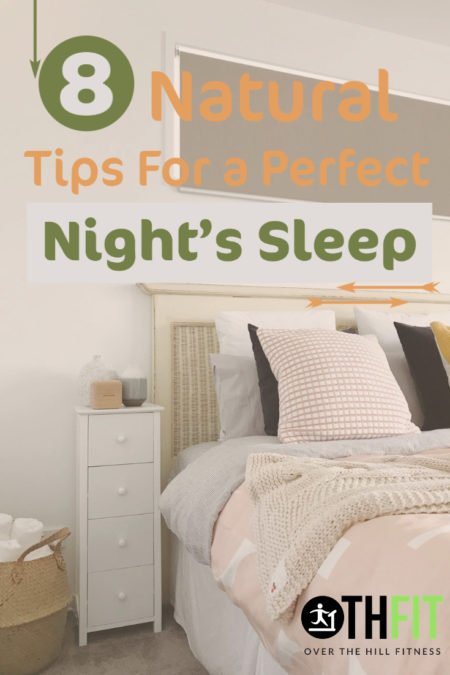




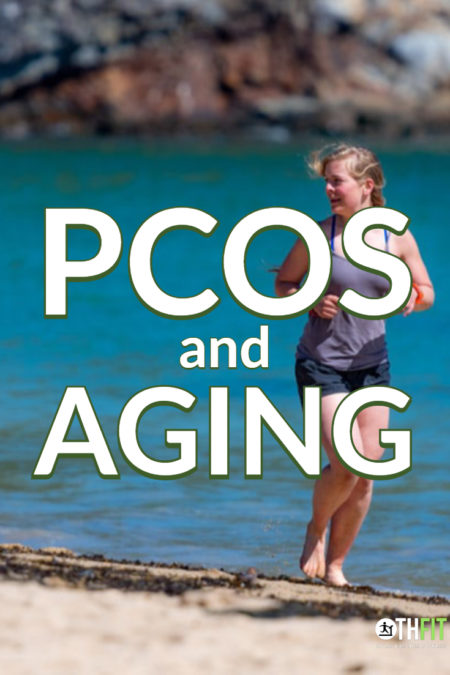
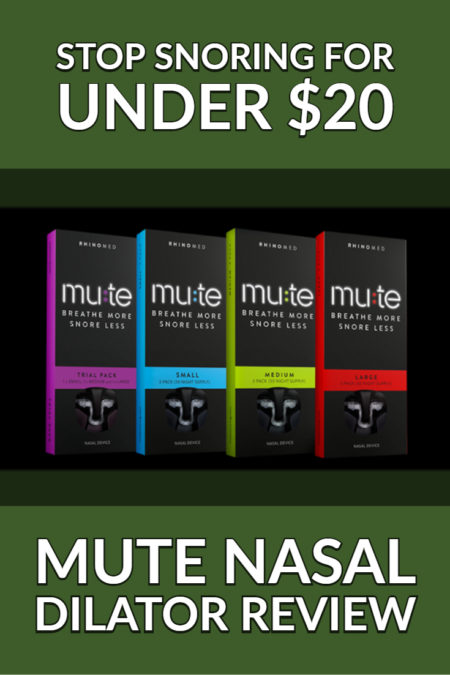
9 Comments
Sarah
Ahh, reading this makes me want to jump in bed right now! Some night I have trouble falling asleep so easy so I know this post is going to help me going forward. Thanks! 😌
Sarah | getupgetaway.com
Yaya
Great post full of really useful advice I should definitely follow! Whereabouts in NM do you live? I’m from El Paso.
Bill
We just moved to Los Lunas (South of Albuquerque) last March and we love it here. This is my first time in the SouthWest and I don’t think I’ll ever move back to Kansas.
Dayma
I completely agree with all these points! I’ve always struggled to fall asleep and establishing a routine and deep and slow breathing have definetely been a game changer in my sleep!
Roger
Nice post and well written. I definitely relate to the breathing suggestion. I also find that this technique helps if there are many things on my mind.; as the breath focuses my attention and my mind will start to slow. Thanks for sharing.
Sleep is good
So much good stuff here. Electronics aspect is so important. If you want to get some good rest. All through the night our phones dig and chirp with the different notifications. Then there is the blue light the emanates from the screen that helps keep us awake. I agree that put your electronics at the closest opposite side of the room and if you can enable the Do Not Disturb.
Ally
Great post! Focusing on deep relaxing breathing has been a gamechanger for me! That and a silk sleep mask 🙂
Toniann
Great tips! I have difficulty sleeping. I will give some of these tips a try!!
Brie
Your nightly ritual sounds amazing and like something I need to do! I am going to start with your routine and see if that works for me. Slowing my breathing always seems to calm me down during the day, I just haven’t applied it at night, but I totally need to! Thank you 🙂